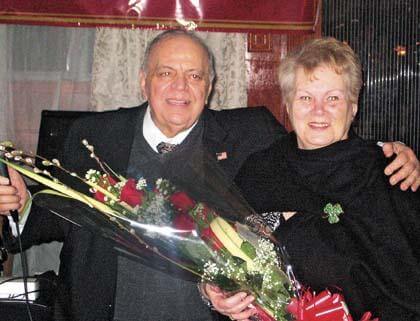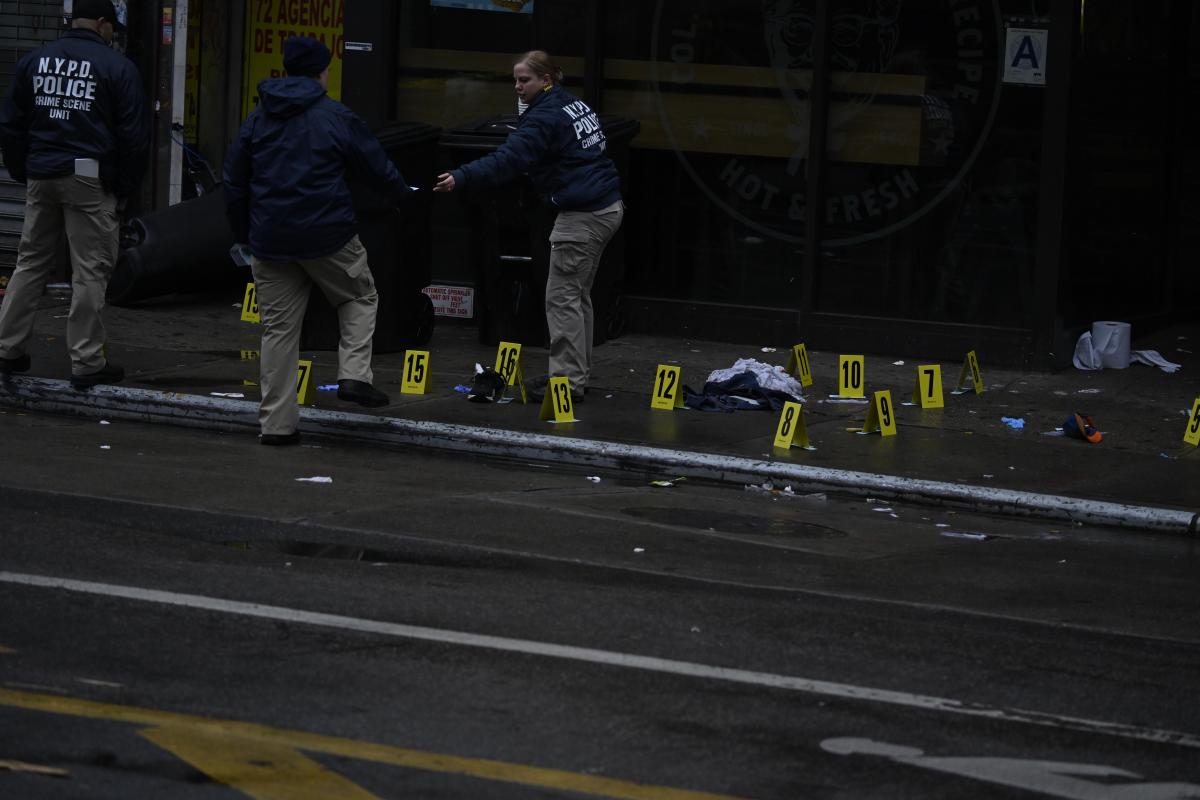By Howard Koplowitz
Disgraced former state Assemblyman Brian McLauglin was an FBI informant in the federal government's case contending that Assemblyman Anthony Seminerio's (D-Richmond Hill) took bribes from those seeking the legislator's influence in Albany, sources familiar with the investigation said Friday.
One of the sources said he realized McLaughlin, whose sentencing on federal corruption charges was delayed Friday, was the unidentified witness just by reading the federal complaint against Seminerio.
The witness and an undercover FBI agent recorded conversations during the government's investigation into Seminerio, according to the complaint.
The U.S. attorney's office in Manhattan stunned Queens last Thursday when it announced at a news conference that Seminario, 73, allegedly established a consulting firm called Marc Consultants in April 2000 and charged clients to give them access to state legislators who could advance their interests.
Seminerio faces a maximum of 20 years in prison if convicted of federal honest services mail fraud charges because an undercover FBI agent posing as a client of the assemblyman allegedly sent him $25,000 in checks through Federal Express.
Prosecutors claimed Seminerio did little or no actual consulting work.
McLaughlin, 55, signed a deal with federal prosecutors in March that recommended he serve between eight and 10 years in prison in exchange for a guilty plea on federal racketeering and false statements charges for stealing $2.2 million from an electrical workers union local, the New York City Central Labor Council, an Electchester Little League and other organizations, according to the U.S. attorney.
The district McLaughlin used to represent and Seminerio's district run adjacent to each other. Their most widely known partnership on legislation came in 1999, when Jamaica Hospital sought and eventually took over Flushing Hospital.
The criminal complaint said two unidentified hospital executives, believed to be from Jamaica Hospital, paid Seminerio $310,000 and complained to him in March that the Assembly's budget bill was "not good for us." The executives also discussed their hospital's plans to acquire another institution.
There were strong indications that the hospital referred to in the complaint was Jamaica Hospital, but a spokesman would neither confirm nor deny any involvement with Seminerio.
"We're aware of the indictment against Assemblyman Seminerio. We're also aware of the speculation that we are the hospital," said Jamaica Hospital spokesman Michael Hinck. "I can't comment on any relationship or linkage between the hospital and Assemblyman Seminerio."
An unnamed hospital executive spoke to Seminerio March 13 about how an Assembly budget bill would damage the hospital, the complaint said.
That same day, Seminerio held a fund-raising dinner at La Bella Vita in Ozone Park, which Jamaica Hospital Chief Executive Officer David Rosen and Chief Operating Officer Bruce Flanz attended. Flanz wrote a $1,000 check to Seminerio's campaign March 13, according to state campaign finance records.
Rosen has contributed $10,000 to Seminerio since 1999, while Flanz has donated $6,500. Seminerio also received $8,250 from Jamaica Hospital Chief Financial Officer Mounir Doss during that nine-year span.
State Assemblyman Jeffrion Aubry (D-Corona) said he was one of four unnamed assemblymen mentioned in the 17-page federal complaint as meeting with Seminerio and an undercover FBI agent posing as a client of Seminerio's consulting firm.
He and the other legislators were not accused of any wrongdoing.
According to the complaint, the undercover told Seminerio he was interested in privatizing certain state probation services.
Aubry chairs the Assembly Correction Committee.
Seminerio and the FBI agent met Aubry on the floor of the Assembly sometime in March, according to the complaint. The three met again at an Albany restaurant April 15.
"I remember both occasions," Aubry said.
"It is shocking," he said. "I was taken much by surprise. I like Tony. Tony's a guy who I'd be friendly with for any number of reasons."
Seminerio "was using his own possession, he was using the institution and me," Aubry said. "That's distasteful."
The borough's elected officials said they could not see any motivation for Seminerio's alleged conduct.
"I don't know what made him go this way. Tony's a smart guy," Aubry said. "He wasn't wearing big diamond rings and sharkskin jackets."
But Seminerio could have been motivated after he took part in a failed coup attempt to oust Assembly Speaker Sheldon Silver (D-Manhattan) from his post in 2000, the same year he allegedly set up Marc Consulting.
Seminerio lost a $19,000-a-year stipend attached to his title as assistant majority leader when Silver punished the coup participants.
Conspiracy theories circulated throughout the borough that the Queens Democratic Party knew the charges against Seminerio were coming and Ozone Park attorney Albert Baldeo would run for Seminerio's Assembly seat, but they were shot down.
"No one could have foreseen that that was coming," said Baldeo, who asked a reporter whether Michael Reich, the Queens Democratic Party's executive secretary, had ruled him out as a candidate. "The federal government doesn't work like that."
Reich said Seminerio, who is up for re-election in November, still has the party's support.
"I'm not going to condemn a man based on an allegation," said Reich, who agreed with Baldeo that the claim of the party knowing about the charges was far-fetched. "He's certainly entitled to the presumption of innocence. You're talking about a man who has served his community for 30 years."
Philip Newman contributed to this story.
Reach reporter Howard Koplowitz by e-mail at hkoplowitz@timesledger.com or by phone at 718-229-0300, Ext. 173.































